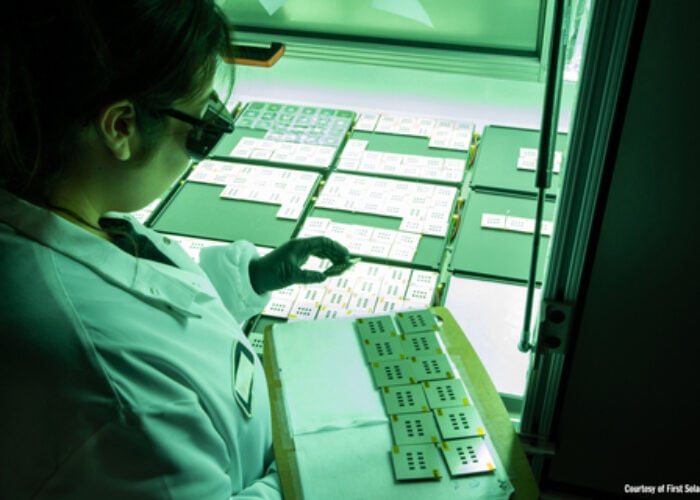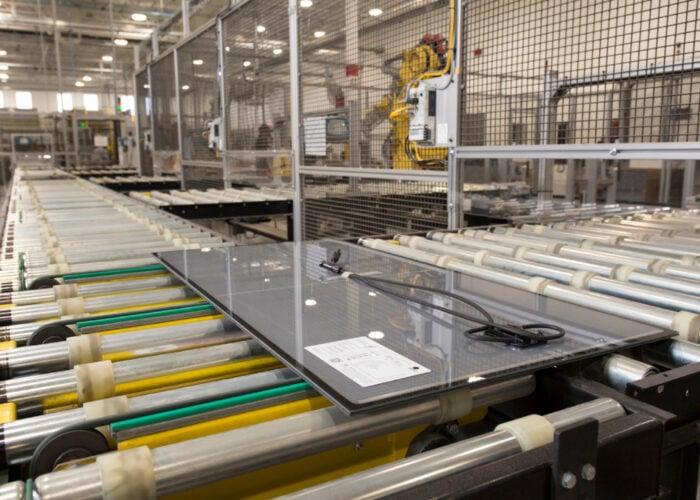One of Japan’s largest trading companies, Marubeni, which is already involved in both upstream and downstream sectors of PV industry, has entered the domestic market for residential solar.
Marubeni announced yesterday that its offering will include modules, inverters and mounting systems. Typically residential solar in Japan is marketed in complete kit form by most providers in this way.
Try Premium for just $1
- Full premium access for the first month at only $1
- Converts to an annual rate after 30 days unless cancelled
- Cancel anytime during the trial period
Premium Benefits
- Expert industry analysis and interviews
- Digital access to PV Tech Power journal
- Exclusive event discounts
Or get the full Premium subscription right away
Or continue reading this article for free
PV Tech spoke to Alessandro Fujisaka of Marubeni America at PV Expo in Tokyo in late February. Fujisaka said the company’s residential kits will include panels from Chinese tier-one supplier JA Solar, mounting systems by US manufacturer ZEP Solar and inverters by local company Omron.
According to a report by Bloomberg yesterday on the announcement, Hanwha Q Cells will also supply the new range with modules. Marubeni says it will offer an extensive warranty with the new range. Alessandro Fujisaka, who is a sales and marketing manager with a background in engineering, told PV Tech that the warranty is a key part of Marubeni’s new product, particularly in the brand and quality conscious Japanese market.
“On top of the manufacturer’s warranty, we include a Marubeni warranty on the system,” Fujisaka said.
“There is a concern in the Japanese market where if a panel comes from China and the warranty is 25 years, I don’t know if that company will honour that warranty. People say, ‘Marubeni, I know that name, you’re not going away’”.
Marubeni’s involvement in solar is extensive. The company is involved not only in the supply and processing of raw materials but also the supply of panels, development of projects and owning and acquiring generation assets, among other areas. While the company does not make its own panels, for example, it is supplier of equipment and materials for panel manufacturers including Trina Solar as well as being one of Trina Solar’s customers further down the supply chain, using Trina panels in Marubeni’s own projects.
The company, like other big names among Japan’s mammoth trading conglomerates, was heavily involved in the large-scale ‘megasolar’ industry in Japan which closely followed the inception of the feed-in tariff (FiT) in 2012. Alessandro Fujisaka explained briefly that Marubeni now saw potential for the residential sector as a stable but growing platform for developing solar.
“You may have seen that the market in Japan has grown a lot but it has also shifted from megasolar going to commercial, and now I think there’s an increasing focus on the residential market,” Fujisaka said.
“One reason is obviously that the FiT for megasolar came down a lot. Land is another [reason]. It’s not like you have [suitable] land everywhere in Japan. So then the residential market became a more stable, growing opportunity I think.”
The latest move by the Japanese government to support renewable energy growth, following from the FiT policy and support for lithium-ion energy storage and hydrogen fuel cell deployment, is to subsidise Net Zero Energy houses, houses that are carbon neutral or better. Other solar companies including Solar Frontier have also become involved in this sector, in Solar Frontier’s case partnering with a production homebuilder, Sekisui Heim.
Japan is preparing to leave the FiT behind entirely in 2020 when it expires, while it is also expected to begin a process of deregulating its electricity retail market from next year, which could allow individuals to buy and sell electricity at the most favourable prices, including residential PV system owners.
For an examination of the recent issues facing Japan’s solar industry, read the second volume of PV Tech Power, currently available online.






